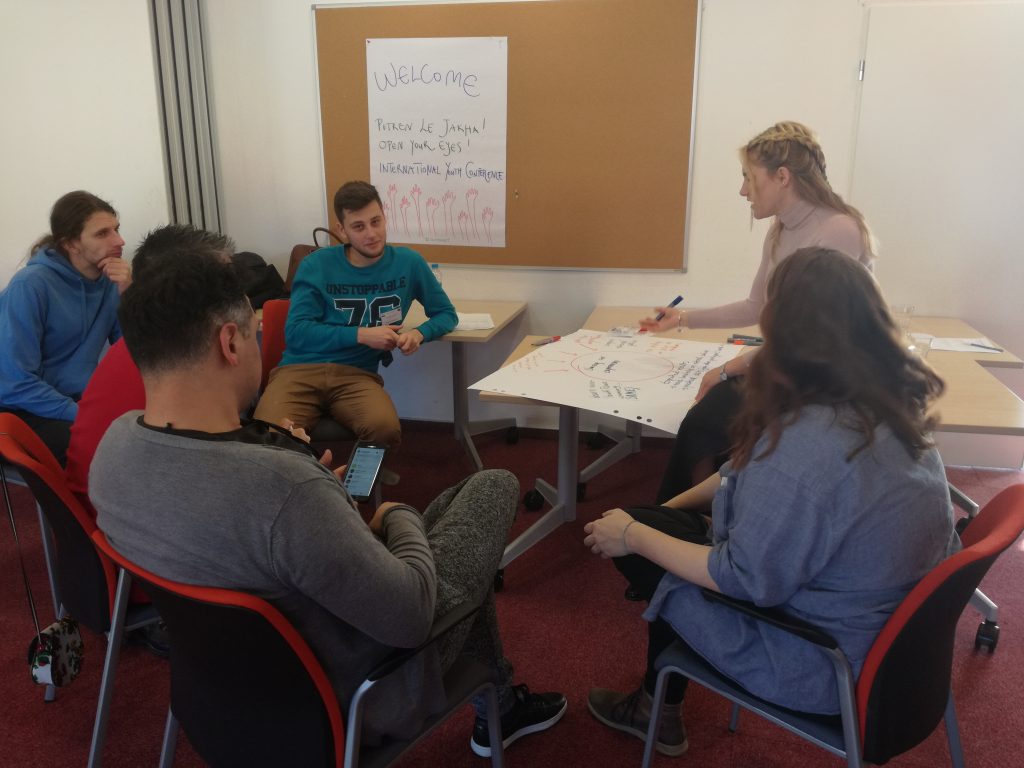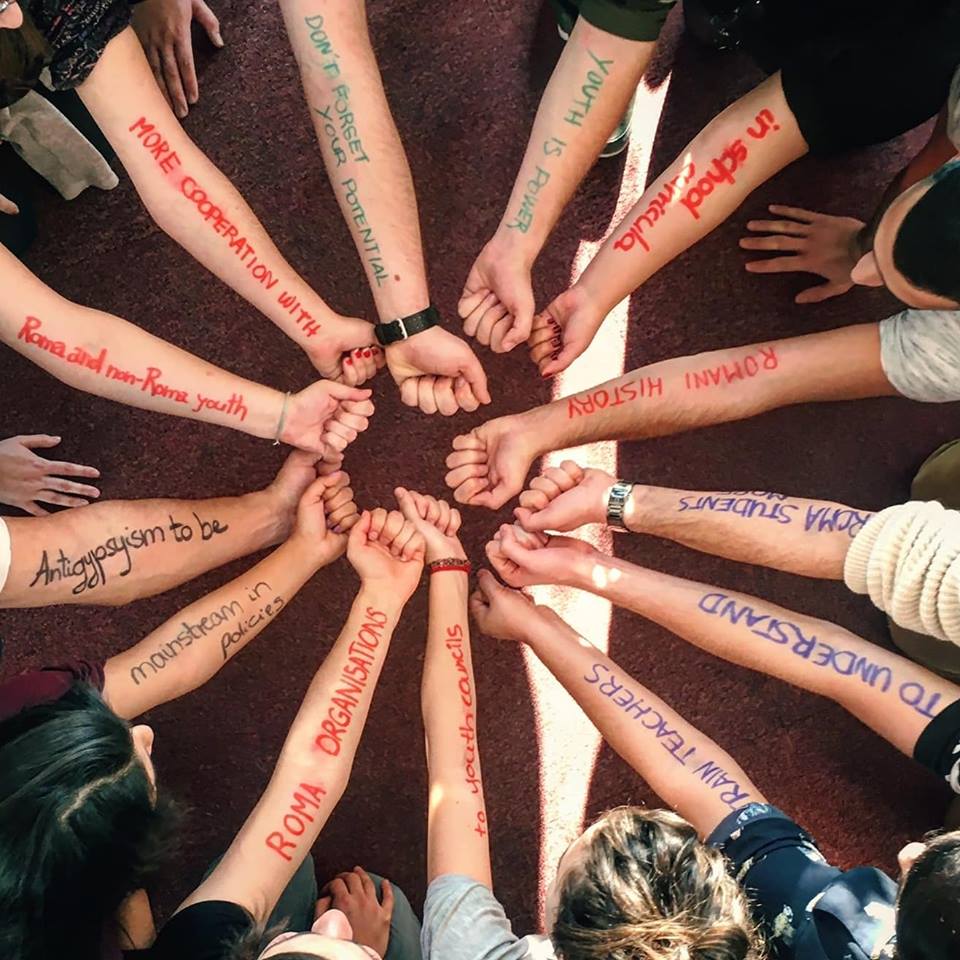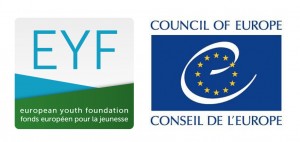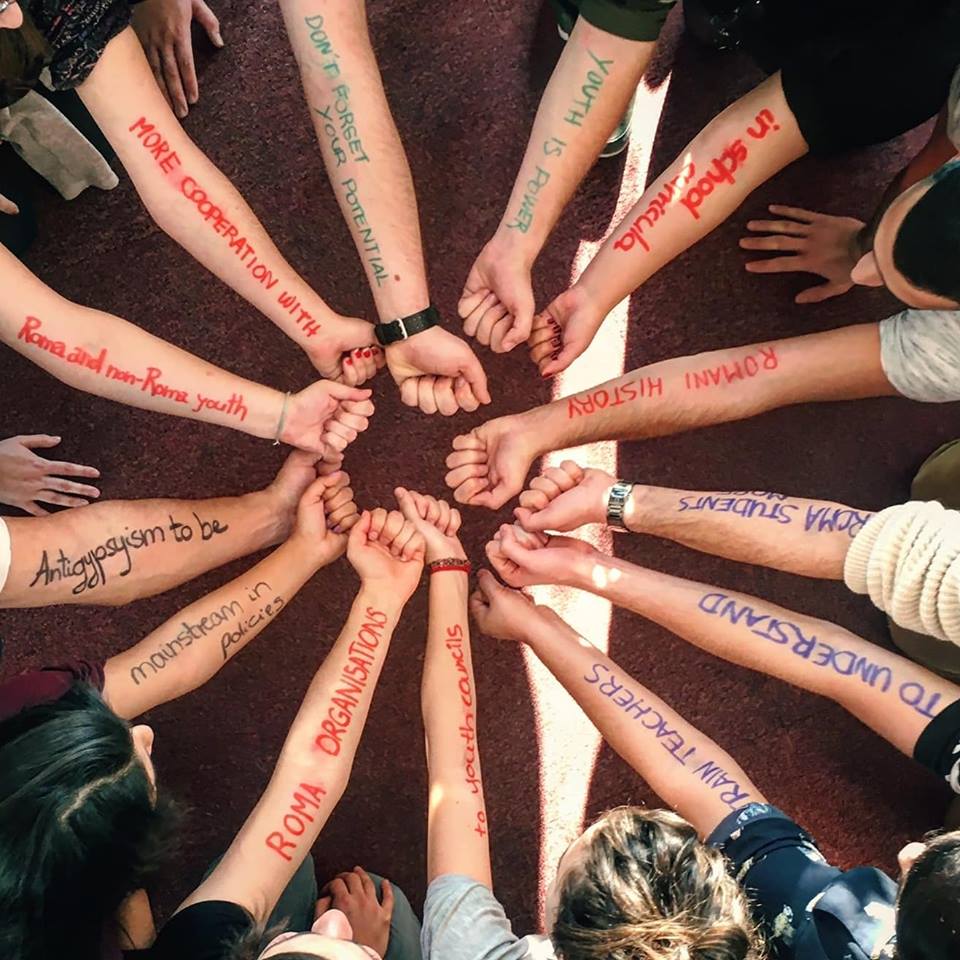Last December, Phiren Amenca held its fifth annual international youth conference, Putren le Jakha – Open Your Eyes! in the European Youth Centre of Budapest, Hungary. Our conference brought together 35 participants from 13 different countries across Europe to understand, recognize and interrogate antigypsyism in their different contexts. Antigypsyism is a word that describes the particular kind of institutional and relational racism experienced by people who are or are perceived to be Roma, Sinti, Gypsy or Traveller. And for the past five years, we at Phiren Amenca have been creating a space for Roma and non-Roma young people to gather together, share their experiences of antigypsyism and build their capacities for social justice work.

The particular focus of this year’s conference was to discuss and critique National Roma Integration Strategies, which have been active across Europe since 2011. Our participants were to learn about the situation of the Roma in communities across Europe, evaluate current national integration strategies, and identify areas where improvement was necessary.
We concluded that antigypsyism needs to be named with specificity. National policies which attempt to target ‘racism’ or ‘discrimination against marginalized people’ demonstrably have not and probably will not bring justice. Tackling antigypsyism needs to be a mainstreamed priority in national social budget allocation, not part of an annex. Policies need to be clear and specific, and violation of those policies needs to be prosecutable. Political leaders are responsible for the wellbeing of people in their communities. They must ensure that the rights of the Roma people are safeguarded and take active measures to enable Roma youth participation in political life. Antigypsyism must be tackled by governments, in the classroom and through cross-cultural relationships.
Our Roma and non-Roma participants presented these recommendations arm and arm, written clearly and boldly on their skin.

Recommendations are written in marker across participants’ arms, which are held closely next to each other. The recommendations are: More cooperation with Roma and non-Roma youth. Antigypsyism to be mainstream in policies. Train teachers to understand Roma students more. Roma organizations to youth councils. Romani history in school curricula. Youth is power – don’t forget your potential.]
The conference was supported by the Roma Youth Voices Project, funded by the Rights, Equality and Citizenship Programme of the DG Justice, European Commission and by the European Youth Foundation of the Council of Europe.




